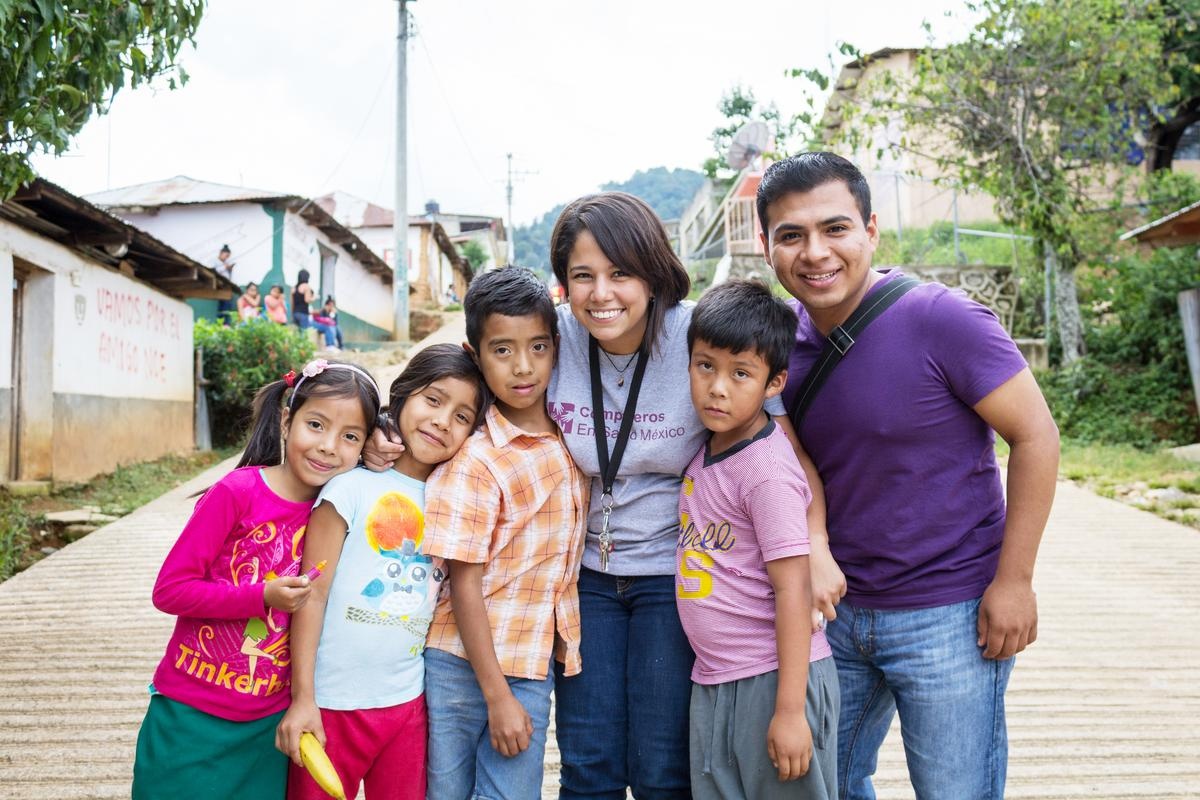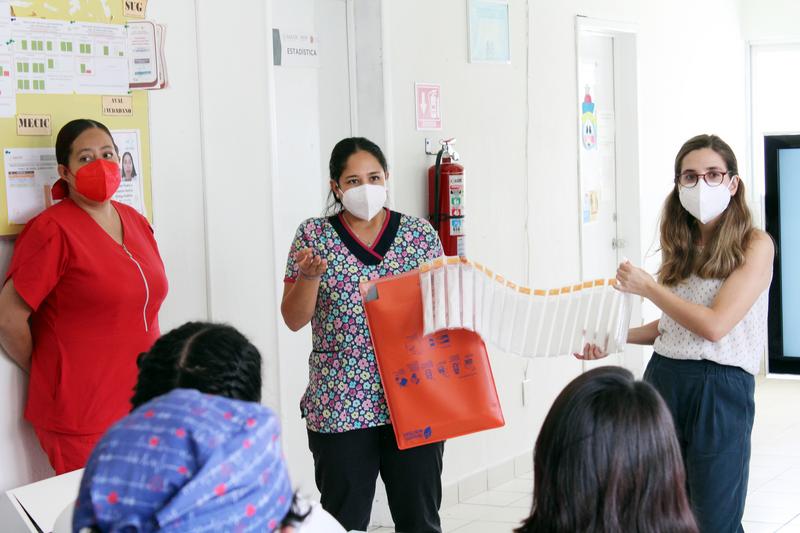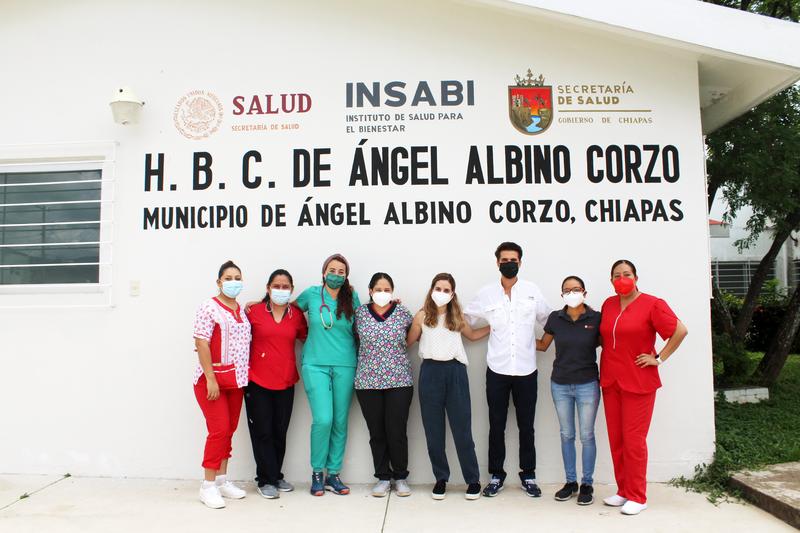Expanding Pediatric Care in Chiapas, Mexico
PIH hires pediatricians to serve rural communities, fill unmet need
Posted on Sep 16, 2022

Dr. Zulema García and Dr. Azucena Espinosa have been pediatricians with Partners In Health since April. But their history in Chiapas dates back many years.
Espinosa arrived in the rural, coffee-growing Sierra Madre region in 2014, as a first-year clinician with Partners In Health, known locally as Compañeros En Salud—a year she describes as "the best year of my life."
Each year, Compañeros En Salud hosts 10 first-year clinicians, called pasantes, who complete their mandatory year of social service in rural communities where the health system has historically lacked the staff and resources to deliver quality care. Compañeros En Salud has worked in Mexico since 2011, serving nine rural communities in the Sierra Madre region, in partnership with the Ministry of Health.
After completing her year of service, Espinosa stayed with Compañeros En Salud as a coordinator for the Right to Health program. As she helped patient after patient access advanced medical care, as well as connecting them with food, housing, and transportation, she noticed a troubling reality: there were no pediatricians in the region.
Children in need of advanced care had to travel to cities hours away—journeys that many patients in the rural communities couldn’t afford.
In Mexico, medical specialists like pediatricians are often based in large cities like Mexico City, Monterrey or Guadalajara, where more advanced infrastructure and health systems allow patients greater access to care. But in states like Chiapas, one of the poorest in the country, the reality is different.
Chiapas has the lowest rate of medical specialists in Mexico, with just 35.9 per 100,000 residents, compared to Mexico City’s 505.7. To make matters more complex, there is only one public hospital in the entire state for pediatric care, located in the capital, Tuxtla Gutiérrez. Anyone outside of Tuxtla Gutiérrez in need of these services would have to travel for hours or turn to the private health system—too expensive for most patients to afford.
That reality compelled Espinosa to pursue a specialty in pediatrics. Now, three years later, she has returned to Chiapas with Compañeros En Salud. And she was not alone.

García also began her time in Chiapas as a pasante, assigned to serve the rural community of Capitán Luis A. Vidal. She, too, stayed after her year of service, becoming a coordinator for Compañeros En Salud’s community health worker program. Compañeros En Salud’s 106 community health workers, called accompañantes, conduct door-to-door outreach in the rural communities, visiting patients and their families at home and connecting them with care.
García saw first-hand the power of community in strengthening health systems from the ground up—and the unmet need. She decided to return to school to study pediatric care. The journey led her back to Chiapas.
"I was motivated to return by the fact that I could bring a specialized service closer to the population and that they would no longer have to travel for more than three hours to reach a specialist," she says.
Now, both Espinosa and García are developing a work plan in collaboration with the basic community hospital in Jaltenango and the Ministry of Health. That plan includes training nursing staff in pediatric care, since this team is a cornerstone of care for patients in the region. Another goal is to decentralize information among health personnel and reduce gaps in patient care.

The plan has been progressing, with 20 health workers trained so far. Still, providing pediatric care in a rural area comes with many challenges, from navigating an under-resourced hospital to considering how poverty can affect a child's recovery, such preventing families from attending follow-up appointments.
But the program is already having a massive impact, in a region where there were once no pediatricians.
"Parents come up to us and tell us that in other times and in other circumstances they would not have had any option to treat their children," says García.
For Espinosa, the reward is also the sense of community at Compañeros En Salud, from staff to patients.
"It's like a family that shares the same vision, the same passion as you, and doesn't abandon you,” she says. “This is a constant reminder of why I'm here."

